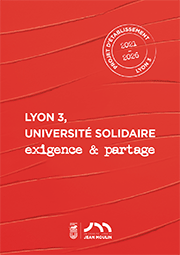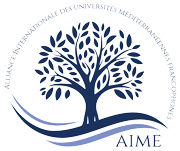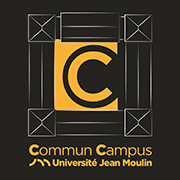AccueilRechercheProgrammes et productions scientifiquesThèsesThèses soutenuesThèses soutenues - 2006-2021Thèses soutenues - 2017
-
Partager cette page
- Recherche,
ONANA Auguste Charles
Rwanda : l’opération turquoise et la controverse médiatique (1994-2014). Analyse des enquêtes journalistiques, des documents secret-défense et de la stratégie militaire
Publié le 3 janvier 2018 – Mis à jour le 14 décembre 2018
Thèse en Science politique, soutenue le 21 décembre 2017.
Le 22 juin 1994, le Conseil de sécurité de l’ONU vote la résolution 929 autorisant le déploiement d’une force multinationale humanitaire, neutre et impartiale au Rwanda ayant pour mission de mettre fin aux massacres. Concrètement, c’est la France, à l’initiative de ce projet, qui va assurer le commandement de la mission dénommée Opération Turquoise. Celle-ci se heurte à l’opposition des rebelles tutsis du Front Patriotique Rwandais, aux réserves des organisations humanitaires mais elle re?oit le soutien appuyé du gouvernement intérimaire rwandais hutu. L’Opération Turquoise suscite surtout une vague d’accusations dans la presse fran?aise, le président Fran?ois Mitterrand et les militaires fran?ais étant accusés de ? complicité de génocide ?, voire de ? participation au génocide ?. Ces accusations perdurent et reviennent régulièrement depuis plus de vingt ans, relayées par des journalistes qui disent avoir découvert puis révélé ? l’inavouable ? r?le de la France au Rwanda.
Cette étude analyse les enquêtes journalistiques menées de 1994 à 2014 et les confronte aux documents confidentiels et secret-défense issus des archives américaines, fran?aises, rwandaises et onusiennes, ainsi qu’à la stratégie militaire mise en ?uvre durant l’Opération Turquoise. Elle permet ainsi d’identifier les sources sur lesquelles reposent ces accusations et d’en évaluer le bien-fondé. Ce faisant, elle met en évidence la fa?on dont la recherche s’est concentrée sur le génocide au détriment de la lutte armée initiée par le FPR de 1990 à juillet 1994, laissant de c?té des aspects essentiels à la compréhension de la tragédie rwandaise.
On the 22nd June 1994, the UN Security Council passes the resolution 929 authorising the deployment of a multinational humanitarian, neutral and impartial force to Rwanda having as its mission to put an end to the massacres. In concrete terms, it is France, on initiative of this project, who goes to carry out the command of the mission named Operation Turquoise. This comes up against the opposition of the Tutsis rebels of the Rwandan Patriotic Front, to the reservations of the humanitarian organisations but it receives the backup support of the acting Rwandan Hutu government. Operation Turquoise incites above all a wave of accusations in the French press, with the President Fran?ois Mitterand and the French military soldiers being accused of 'complicity in genocide', even of taking part in the genocide. These accusations have endured and have been regularly coming back for more than twenty years, relayed by journalists who claim to have discovered then revealed the shameful role of France in Rwanda
This study analyses the journalistic inquiries led from 1994 to 2014 and compares them with confidential secret defence documents stemming from American, French, Rwandan and UN records, as well as the military strategy put in place during Operation Turquoise. It also allows identification of the sources on which these accusations lie and evaluation of their validity. In so doing, it brings to the fore the way in which the research has focused on the genocide to the detriment of the armed struggle initiated by the RPF from 1990 to July 1994, leaving aside essential aspects in the comprehension of the Rwandan tragedy.
Cette étude analyse les enquêtes journalistiques menées de 1994 à 2014 et les confronte aux documents confidentiels et secret-défense issus des archives américaines, fran?aises, rwandaises et onusiennes, ainsi qu’à la stratégie militaire mise en ?uvre durant l’Opération Turquoise. Elle permet ainsi d’identifier les sources sur lesquelles reposent ces accusations et d’en évaluer le bien-fondé. Ce faisant, elle met en évidence la fa?on dont la recherche s’est concentrée sur le génocide au détriment de la lutte armée initiée par le FPR de 1990 à juillet 1994, laissant de c?té des aspects essentiels à la compréhension de la tragédie rwandaise.
On the 22nd June 1994, the UN Security Council passes the resolution 929 authorising the deployment of a multinational humanitarian, neutral and impartial force to Rwanda having as its mission to put an end to the massacres. In concrete terms, it is France, on initiative of this project, who goes to carry out the command of the mission named Operation Turquoise. This comes up against the opposition of the Tutsis rebels of the Rwandan Patriotic Front, to the reservations of the humanitarian organisations but it receives the backup support of the acting Rwandan Hutu government. Operation Turquoise incites above all a wave of accusations in the French press, with the President Fran?ois Mitterand and the French military soldiers being accused of 'complicity in genocide', even of taking part in the genocide. These accusations have endured and have been regularly coming back for more than twenty years, relayed by journalists who claim to have discovered then revealed the shameful role of France in Rwanda
This study analyses the journalistic inquiries led from 1994 to 2014 and compares them with confidential secret defence documents stemming from American, French, Rwandan and UN records, as well as the military strategy put in place during Operation Turquoise. It also allows identification of the sources on which these accusations lie and evaluation of their validity. In so doing, it brings to the fore the way in which the research has focused on the genocide to the detriment of the armed struggle initiated by the RPF from 1990 to July 1994, leaving aside essential aspects in the comprehension of the Rwandan tragedy.
Mots-clés : Rwanda, Ouganda, génocide, Opération Turquoise, armée fran?aise, presse, journaliste, influence des médias, guerre psychologique, guerre civile, Front Patriotique Rwandais, Conseil de sécurité, Human Rights Watch, archives, Fran?ois Mitterrand, Boutros Boutros-Ghali, Paul Kagame, Patrick de Saint-Exupéry
Keywords : Rwanda, Uganda, genocide, Operation Turquoise, french army, press, journalist, media influence, psychological warfare, civil war, Rwandan Patriotic Front, Security Council, Human Rights Watch, archives, Fran?ois Mitterand, Boutros Boutros-Ghali, Paul Kagame, Patrick de Saint Exupéry
Directeur(s).trice(s) de thèse : M. Jean-Paul JOUBERT
Keywords : Rwanda, Uganda, genocide, Operation Turquoise, french army, press, journalist, media influence, psychological warfare, civil war, Rwandan Patriotic Front, Security Council, Human Rights Watch, archives, Fran?ois Mitterand, Boutros Boutros-Ghali, Paul Kagame, Patrick de Saint Exupéry
Directeur(s).trice(s) de thèse : M. Jean-Paul JOUBERT
Membres du jury :
M. Aleksandar JOKIC, Rapporteur, Professor, Université d’?tat de Portland (?tats-Unis),
M. Jean-Paul JOUBERT, Professeur des universités émérite, Université Jean Moulin Lyon 3,
Colonel Luc MARCHAL, expert, ancien commandant des casques bleus belges au Rwanda, Bruxelles.
M. Michel-Louis MARTIN, Rapporteur, Professeur des universités émérite, Université de Toulouse
Président.e du jury : M. Michel-Louis MARTIN
Equipe d'accueil : Francophonie
M. Jean-Paul JOUBERT, Professeur des universités émérite, Université Jean Moulin Lyon 3,
Colonel Luc MARCHAL, expert, ancien commandant des casques bleus belges au Rwanda, Bruxelles.
M. Michel-Louis MARTIN, Rapporteur, Professeur des universités émérite, Université de Toulouse
Président.e du jury : M. Michel-Louis MARTIN
Equipe d'accueil : Francophonie
Décision : Admis
Documentation
Mise à jour : 14 décembre 2018







